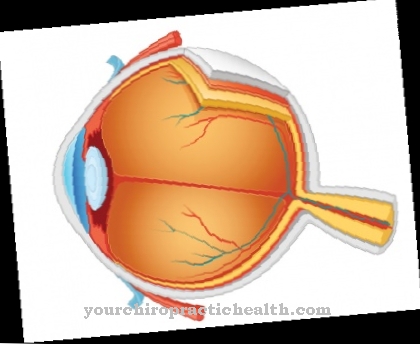The Filtering determines which perceptual contents reach the thinking consciousness. Every person has culturally determined as well as personal filters based on their perceptual memory and experience. In people with psychosis, the brain filters are less focused than in the average person.
What is the filtering?

By and large, people hear and see what they want to hear and see. Because human perception is characterized by filter systems that block out the seemingly irrelevant and only allow people to consciously experience the apparently important stimuli of a situation. The assessment of stimulus relevance is made in the brain on the basis of past perceptions, associated feelings, personal interests and values of the individual.
The filter protects the consciousness from a sensory overload. If humans were to be aware of all stimuli, they would find it difficult to find their way around this jungle of stimuli. From an evolutionary point of view, too, the filter function, as an important part of perception, is of great importance because it made it easier for human ancestors to assess dangers.
Function & task
The human brain has a clock frequency of one kilohertz. Closely connected synapses with different characteristics use chemical processes to efficiently retrieve information. In addition, the brain has a storage capacity of around two petabytes. That is roughly 1000 times that of a high-performance computer.
Every human sensory system has its own storage space. Sensory impressions are categorized, networked, classified, emotionalized, sensory integrated, interpreted and linked to language in the brain on the basis of past perceptions. The functioning of the human perception apparatus is also dependent on filtering. This filtering takes place on the basis of the perception memory. Countless stimuli stream into people every second. Consciously perceiving all external stimuli would overwhelm the capacity of the human consciousness.
Through the filter system, humans consciously only absorb those stimuli from the surrounding world that they consider useful. To do this, the brain sorts out the stimuli from perceptual impressions that are relevant to the current situation on the basis of its experience. All other stimuli migrate into the subconscious and are thus filtered out.
Due to the filtering, people only perceive the twittering of birds in the background or not at all consciously when they are currently in an important conversation. The fact that after buying a particular car people see this car model driving through the city more often than before is also due to the perception filter of the brain.
The last-mentioned example shows above all the evaluation function that the brain performs with regard to all perceived stimuli. Every person evaluates situations and the stimuli occurring in them according to their own filter system. Dieter Pabst names, for example, personal experiences and one's own ethics as relevant filters. For example, in addition to upbringing, kindergarten, school and home, the circle of friends and culture also have an influence on the personal filter of an individual. In addition to ethics and morals, conscience, ideological and religious views, notions of justice, dogmas or superstition come into question as value systems for the personal filter. The interests of the individual also take on a filter function: for example, the job, hobbies and inclinations.
The culture and the cultural evaluations of sensory impressions therefore form part of the filter. The other part is made up of personal experiences and personal values based on upbringing, education and interaction with other people.
For example, according to cognitive linguists, language represents the cultural filter. Language draws attention: if, for example, there are 100 different words for snow in a culture, the speaker of that language needs to look more closely at fallen snow to refer to it than the speaker of a language with only one word for snow.
The individual experience filter of human perception, on the other hand, is closely tied to feelings, expectations and values of perceptual memory.
You can find your medication here
➔ Medicines for visual disturbances and eye complaintsIllnesses & ailments
In some cases, the reality filter no longer works for brain-damaged patients. The affected people then act on the basis of memory contents that are absolutely independent of the current situation. Severe memory disorders are usually associated with this phenomenon. In most cases, however, people are not aware of these memory impairments. At the wrong moment, the patient's brain lets memories and values without relevance to the situation take precedence. The brain's reality filter normally only pulls content from memory that is related to the present. In patients with this disorder, the brain is no longer able to do this.
Not only physical, but also mental disorders can be accompanied by a misdirected filtering of perception. This is the case with psychoses, for example. Usually the filters in the brain are more or less sharply adjusted and help to recognize only those of current relevance in a plethora of stimuli and impressions. In people with psychosis, the filters are set much less sharply. For this reason, stimuli and associations pour in on them in an uncontrolled manner. A person's everyday consciousness is relatively rigid due to the filters. In contrast, that of a person with psychosis or schizophrenia is highly dynamic and lively because of the low filter sharpness. This connection suggests a connection between genius and madness, as it has always been said of geniuses. The filters of a creative person are more open to association than those of non-creative people.
























.jpg)



